VIDYABEN SHAH & MANUBHAI SHAH
Saurashtra
Manubhai and Vidyaben begin their development work in full swing after India becomes independent
After coming out of prison, Manubhai went back to work in DCM. However, in early 1948 Sardar Vallabbhai Patel wrote to Lala Shri Ram to release Manubhai to work for the then new Saurashtra State Government (part of present day Gujarat).[1] Upon receiving the letter, Lalaji did not agree as he was in the process of making Manubhai a 25% partner in DCM. Sardar Patel spoke to Lalaji at length, and with much reluctance and after much persuasion, Lalaji agreed and Manubhai moved to Rajkot and joined the Saurashtra Government and served as the Minister for Industry and Labour along with Agriculture, and subsequently to become Finance, Planning and Industries Minister, youngest of all the ministers in the State Cabinet.
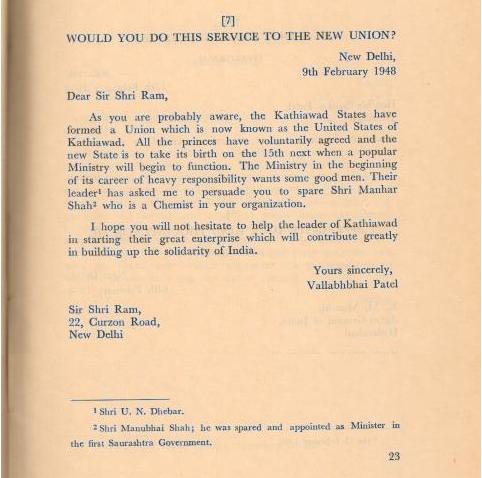
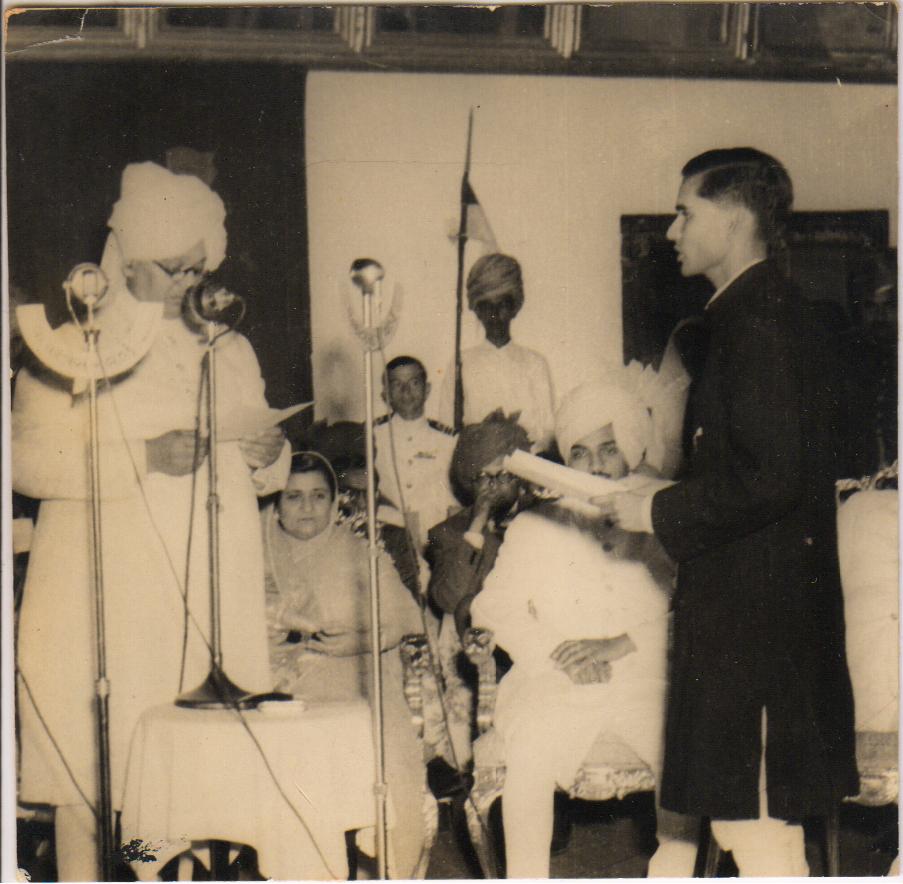
In the Saurashtra Government, the team of six ministers Shri U. N. Dhebar (who later became President of Congress Party), Balwantbhai Mehta, Jagubhai Parikh, Rasikbhai Parikh, Nanubhai Bhatt and Manubhai Shah became famous as “Dhebar Balwant chhe, Jagu Rasik chhe, Manu sauthi Nano chhe” – Dhebarbhai is strong (balwant), Jagubhai is jolly (rasik) and Manubhai is the youngest (nano). In the interim Manubhai also took on the work of Ministry of Agriculture. He remained a Member of Saurashtra Legislative Assembly from 1948 to 1956 from the Congress Party.
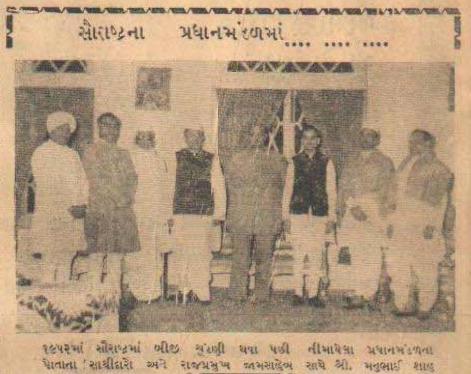
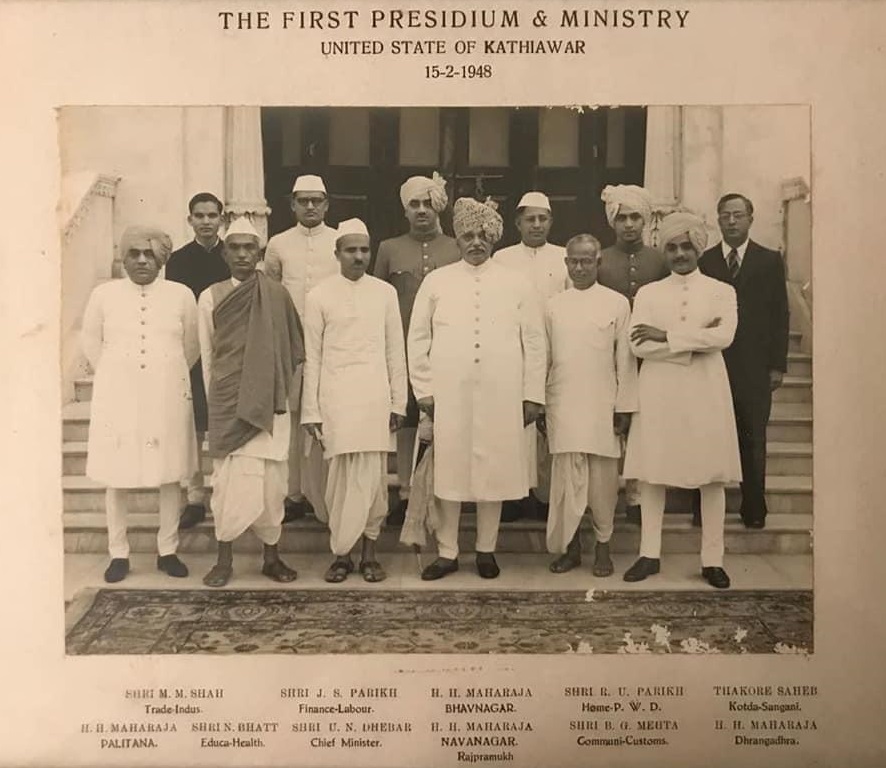
Manubhai’s career as a politician saw a number of major pioneering developments in independent India. He plunged into development work, looking at a wide range of areas, from finance and budgeting, to infrastructure building including roads, to institution building, to crop protection, to industrial growth. He took measures in land reforms and abolition of the unjust Zamindari system whereby Zamindar would be considered as land owners seeking rent from the farmers who were actually tilling the land; the reforms attempted to give the land back to the farmers. Manubhai had conceived of a range of ideas on development and the rebuilding of India while in Ferozepur Jail from where he used to write to Vidyaben and other freedom fighters about his ideas. With some effort these letters used to be smuggled out of the jail. His ideas were always full of practical wisdom as he believed that the first task of rebuilding India was to provide opportunities and the necessary resources to all the people of India to enable them to contribute to the process of development and to reduce the economic and social gap between the different strata of Indian society.
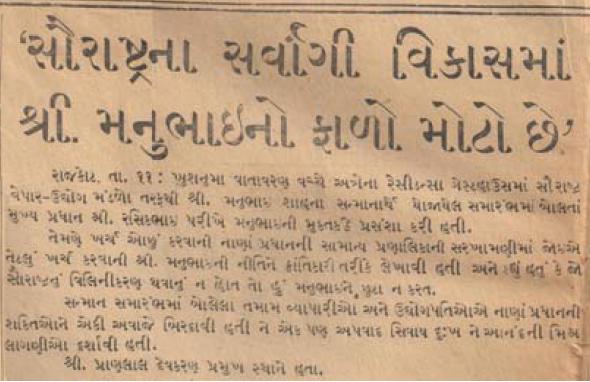
Under his entrepreneurial decisions and rapid implementation programmes, Saurashtra saw the building of a wide network of pucca (cement) roads, protection of crops wherever there were problems with infection and destruction of crops, encouraging the start up of cottage, small and medium industries side by side with supporting large business houses, and creation of jobs and employment. Manubhai would personally sprinkle manure to protect crops, oversee construction of infrastructure and provide ideas and business cases to young entrepreneurs wishing to start new businesses. One such individual he rapidly helped advance was Shri Dhirubhai Ambani who had come to seek advice from Manubhai. There were innumerable enterprising women and men who sought ideas from Manubhai to start small to large businesses and industries and never went back disappointed, such was the vision and repertory of ideas Manubhai had for capital accumulation in India.”
Apart from being a brilliant technologist and builder of industries, Manubhai was also a highly effective economist. He had a unique ability at programme budgeting and financing. As the report above in Gujarati states, “Manubhai’s ethical policy as Finance Minister to ‘spend only according to need’ was revolutionary."
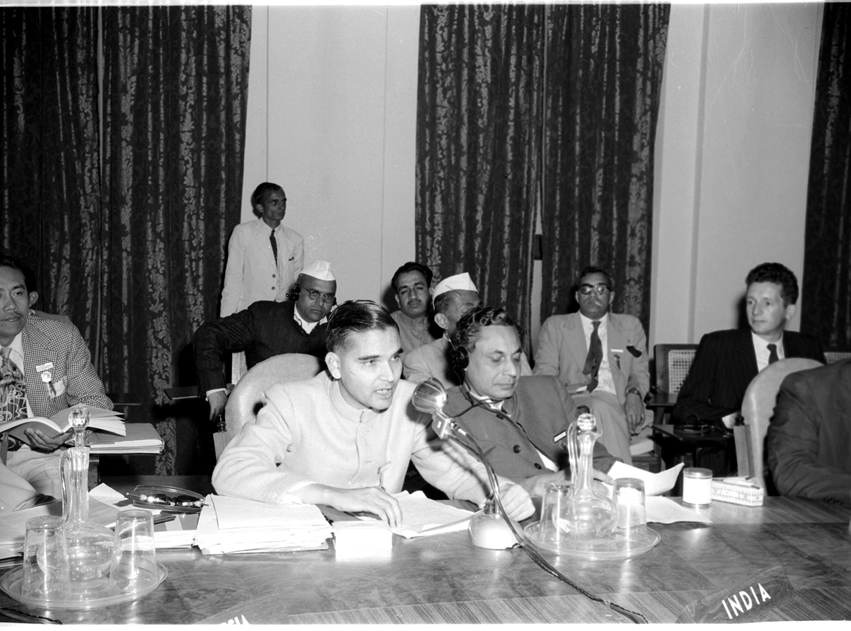
For example, in Saurashtra’s 2nd Five Year Plan and his last in the State before he left to join the Cabinet of Pandit Nehru, the major part of the budget that he presented as Finance Minister of Saurashtra contained largely developmental works and projects. With only Rs 7.5 Lacs of proposed additional tax, by cutting down on unnecessary spending, he gifted the people of Saurashtra with development programmes worth Rs 20 crore which were envisioned also around growth of capital. Even before he left Saurashtra for Delhi, he was already involved with the central government attending meetings with officials in Delhi on major policy issues, as well as negotiating on international matters on behalf of the government such as with the ECAFE.
Apart from concrete achievements in almost every sector touching the lives of the common man, Manubhai and Vidyaben had also started becoming very popular for their highly informative and enlightening speeches. People would queue up to listen to them. They also made themselves easily accessible when anyone needed help or advice or wanted to share their own ideas with Manubhai or Vidyaben on issues of the State or of Welfare. They were always there with a smile on their faces.
Having worked laboriously in the field (including manually sprinkling manure) and perhaps having exerted too hard in prison where bodily torture was routine, Manubhai fell ill and had to take rest for 3 months from his political duties while in Saurashtra. However, after this brief interlude, he came back with greater vigour to continue with his mission of rebuilding Saurashtra. Manubhai Mansukhlal Shah, (MMS – as he was affectionately written about) was also called the Maker of Modern Saurashtra (MMS). As a Governor of West Bengal once said about him, “Manubhai was a human dynamo. I saw him in action when he visited … a factory [in Mumbai] which was under construction in 1948-49. Manubhai looked as if he was in his early twenties. He had not only a youthful appearance but also a youthful spirit. Among his many qualities were his vision and dynamism and an ability to inspire confidence in others.” And in this very way he developed Saurashtra in many dimensions. Apart from his political and executive duties, Manubhai also supported his wife Vidyaben in carrying out her activities with children and women.
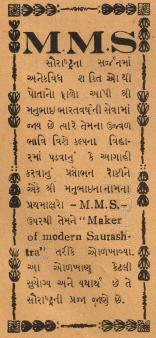
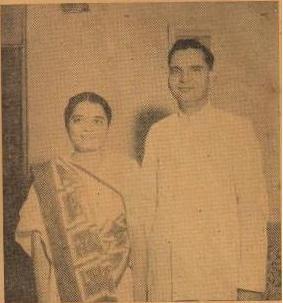
Vidyaben and Manubhai with that typical smile they for ever have on their face
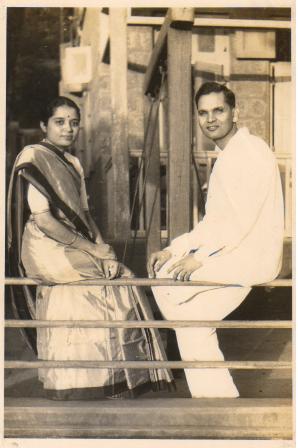 Vidyaben in 1st silk saree given to her by Manubhai 1952
Vidyaben in 1st silk saree given to her by Manubhai 1952Vidyaben grew up in Saurashtra until after marriage when she went to Delhi. Before marriage, while studying in Rajkot and Bhavnagar, she was already an active social worker. In Bhavnagar she was staying in a women’s hostel and had taken on the task of looking after the welfare of young girls who came from East Africa to study in India. After independence when Manubhai and Vidyaben came back to Saurashtra from Delhi, Vidyaben immediately set up a Mahila Mandal (Refugee Women’s Centre) in Sadar, Rajkot for the welfare of refugee women and girls from Pakistan who had been displaced at the time of Partition of India. These women were given livelihood opportunities by training them to do a variety of work, such as producing garments, linen, sacs, bags, as well as bulk printing of stationery and documents, producing files, folders and flap boards to fill procurement orders from the government; these activities at the time were considered revolutionary and were highly empowering for women. Vidyaben personally initiated these activities with different appropriate concepts.
Vidyaben is also a pioneer in the field of child welfare, and came to be affectionately known as Ben (sister) or Behnji. She became the first President of the Saurashtra Council for Child Welfare. She founded the Bal Bhavan movement (Children’s Movement) by establishing in Rajkot the first ever Bal Bhavan in India, which was to become a harbinger of the entire Bal Bhavan Movement throughout the country. Together, Manubhai and Vidyaben invited Jawaharlal Nehru and Indira Gandhi to Rajkot to inaugurate the first Bal Bhavan in India. With the work of many supporters then and over the years Bal Bhavan has become a highly successful children’s institution in the country from which many others have drawn inspiration and ideas. In 1948, Vidyaben was appointed the first Honorary Magistrate for Juvenile Courts in Rajkot, a post she held for 8 years.
To paraphrase the article seen here, “Vidyaben played a significant role in the successes that Manubhai attained in his work. She was always standing by him, partaking of his workload, and co-creating the vision they shared. Not only had she become an active social worker involved in numerous innovative programmes for children, women and family welfare, along with Manubhai she was also always available to anyone seeking their support. At the same time she competently looked after their joint families sometimes with fifty people staying in her house. She showered her affections on them and members of the Shah family came to her for any major family decisions. Despite being educated, cultured and in a high social position in Saurashtra, she remained an utterly simple and humble human being as a result of which people in all strata of society and family loved her very much.”
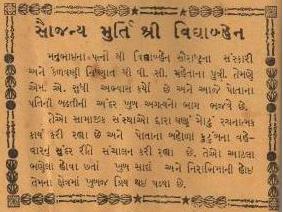
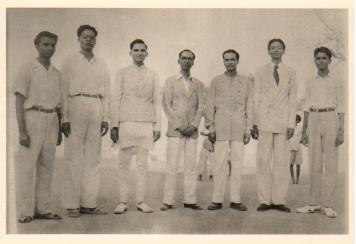
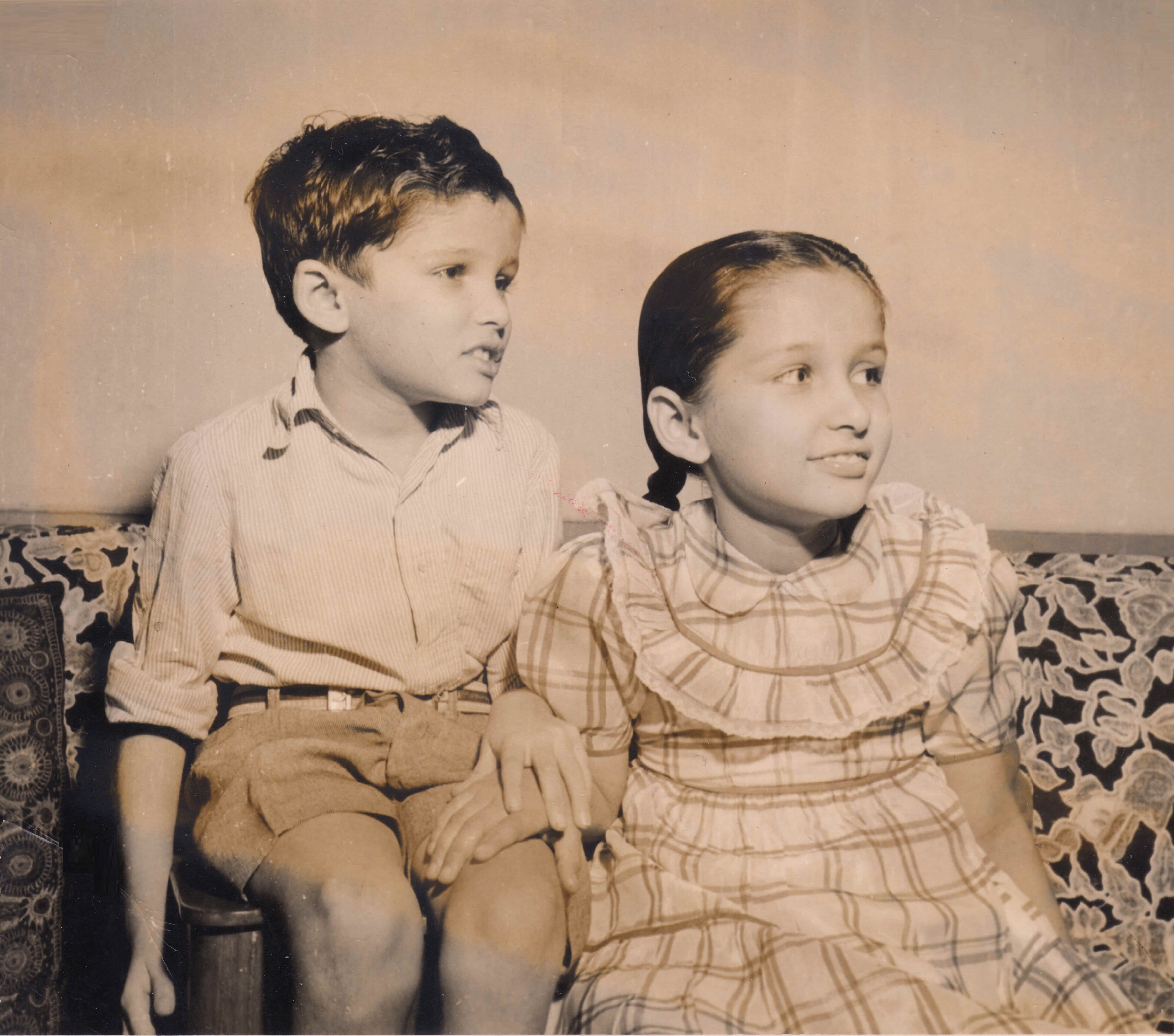
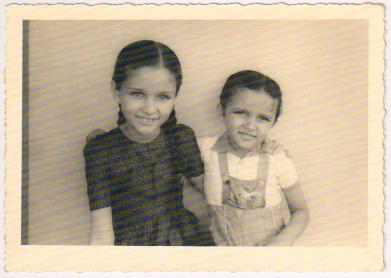
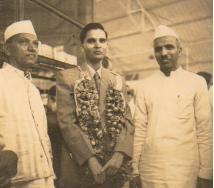
It is truly unfortunate and poignant that a weighty tome called ‘Saurashtra’, brought out by a publisher based in Baroda, fails to do justice to the enormous contributions of Manubhai Shah in the making of modern Saurashtra. The book even tries to make the ridiculous suggestion that Manubhai was unable to work due to his illness!! Nothing could be further from the truth. Indeed, in the streets of cities like Rajkot even today, there are people who tell stories of how Manubhai helped them to concretise an idea or to hasten the building of a school or a business or a hospital or a park. Fortunately, history cannot be undone and the enormous amount of work done by Manubhai and Vidyaben cannot be obliterated.
Not for nothing were the initials MMS (Manubhai Mansukhlal Shah) transcribed as “Maker of Modern Saurashtra”. Even in Delhi, after decades people speak of the initiatives started by Manubhai and Vidyaben to build India and the impact their programmes and initiatives continue to have in the 21st century.
Manubhai was very punctual and his habit of working hard had become widely known in government circles. Once his car driver was late for work and not being able to wait, Manubhai took the family bicycle and rode off to his office. The characteristic of Manubhai of hard and vast amount of work was further demonstrated when he left Saurashtra to join Pandit Nehru’s Cabinet at the Centre in Delhi. And fifty years on, in 2002 industrialists and traders in Rajkot which was the capital city of the erstwhile State of Saurashtra worried about the declining and recessionary performance in industrial exports, and were still praising and admiring the “sustained efforts made by late Manubhai Shah” and the golden period in industry under him, at first in Saurashtra and then across India through his work at the Centre in Delhi in the 1960s and 1970s.[2]
Saurashtra honours Manubhai and Vidyaben on their departure for Delhi, April 1956
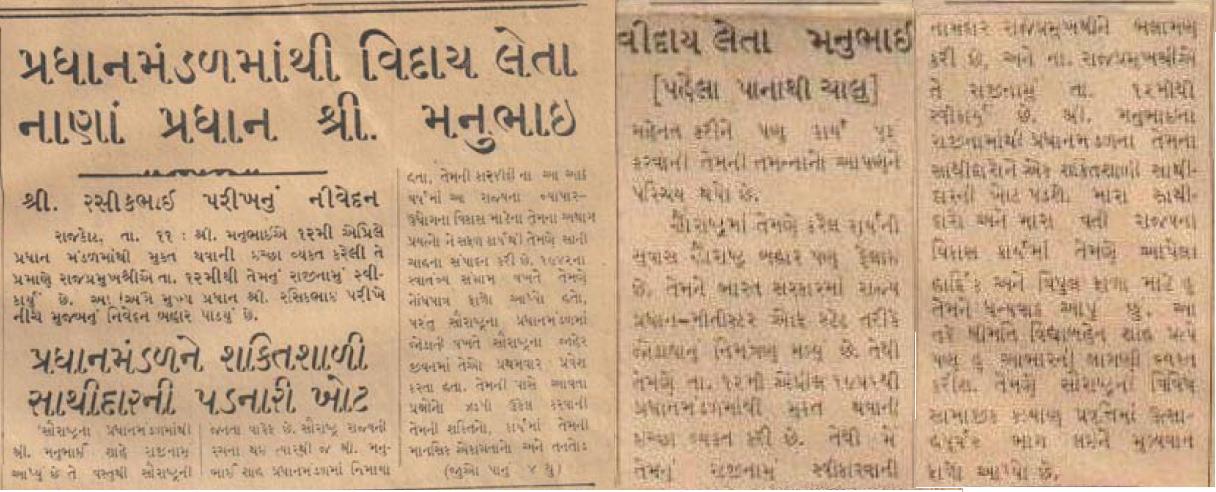
As seen in the report above, in his tribute to Manubhai, the Chief Minister of Saurashtra Rasikbhai Parikh said that, “during the eight years as Finance and Industry Minister, Manubhai made an enormous amount of effort for the growth of industry and trade and in which he secured success for our State which has won him the love of everyone of our citizens. We have all seen his prowess to find speedy solutions to the problems that anyone brought to him, his mental ability to be focused, and his capacity to exert himself to the finish. The aroma of his work in Saurashtra has spread far and wide.” … “Vidyaben Shah has also made highly valuable contributions in a wide variety of social and economic welfare activities for which we are deeply grateful.”
As the report below reads, in a massive public meeting attended by tens of thousands of people, “the Chief Minister paid an awe-inspiring homage to Manubhai by saying that the people of Saurashtra were dazzled by Manubhai’s work. The fact that so many people had gathered in the public meeting was homage in itself and proof of the vast amount of work done by Manubhai with simplicity and humility. Industry and commerce were subjects Manubhai liked and with his astute understanding of these subjects, he solved the most complex of problems with ease. Saurashtra was backward in industry, but with the force of his efforts, Manubhai created a revolution in this sector. He had become like a true friend of industry. In developing the small industry sector he showed a unique originality. This vision he was going to take to the rest of India. Not only in the small scale sector, even for large industries Manubhai implemented what he had envisioned. One could say he had the miraculous ability to create something from nothing (shunya mein se sarjan). Offering practical, honest and appropriate incentives, he also attracted bigger industrialists. He did this work with a balanced approach and gave equal importance as needed to all sectors taking into account fair play and necessities of all sections of society. What was usually a budget of Rs 10 crores for Saurashtra, in the 1st year of the 2nd Five Year Plan he proposed a budget of Rs 27 crores, an astounding quantum which only he could have achieved as a result of his courage and foresight.” …. “As for small scale industry including khadi and village industries, Manubhai increased the budget contribution by 12 times.”
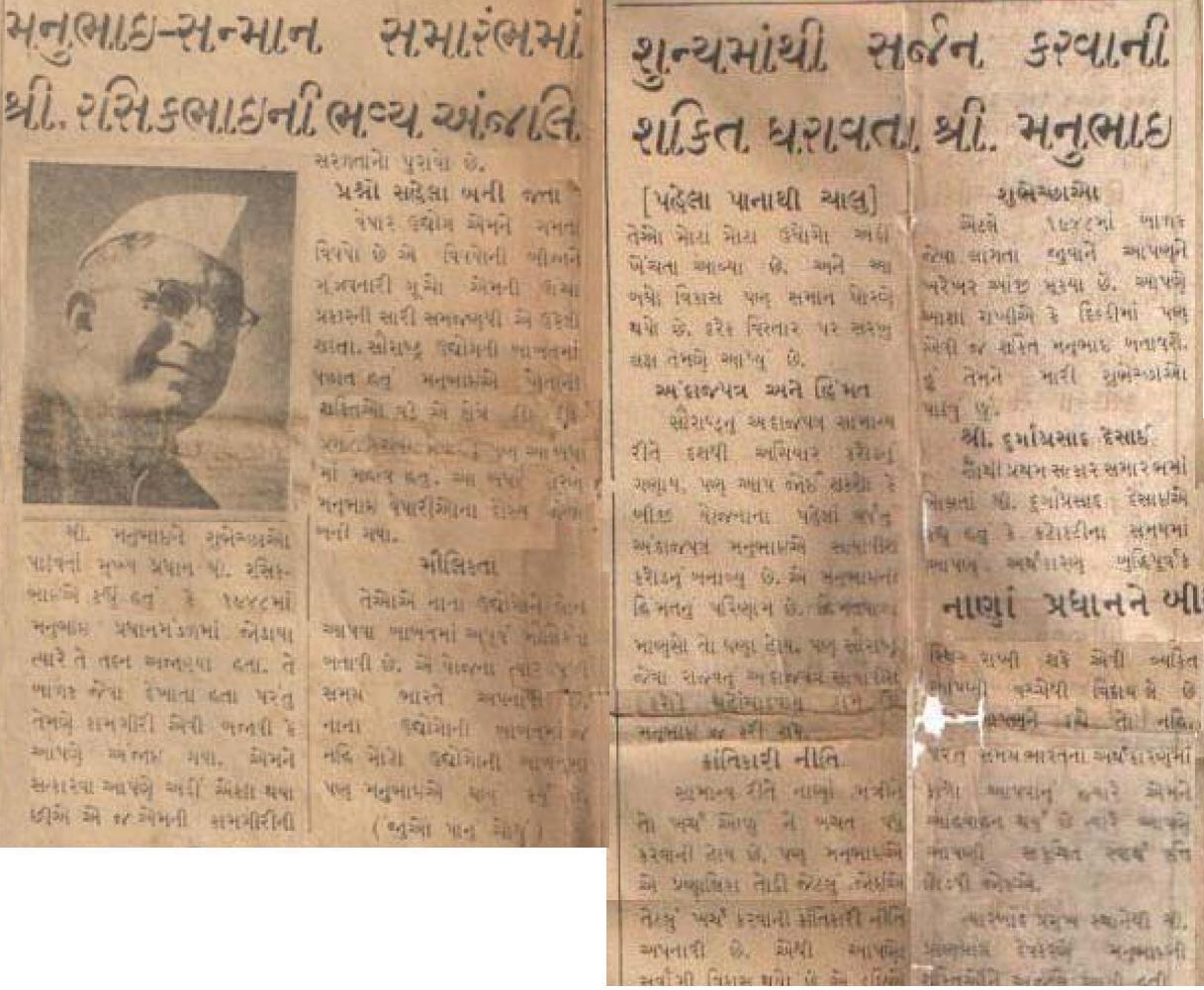
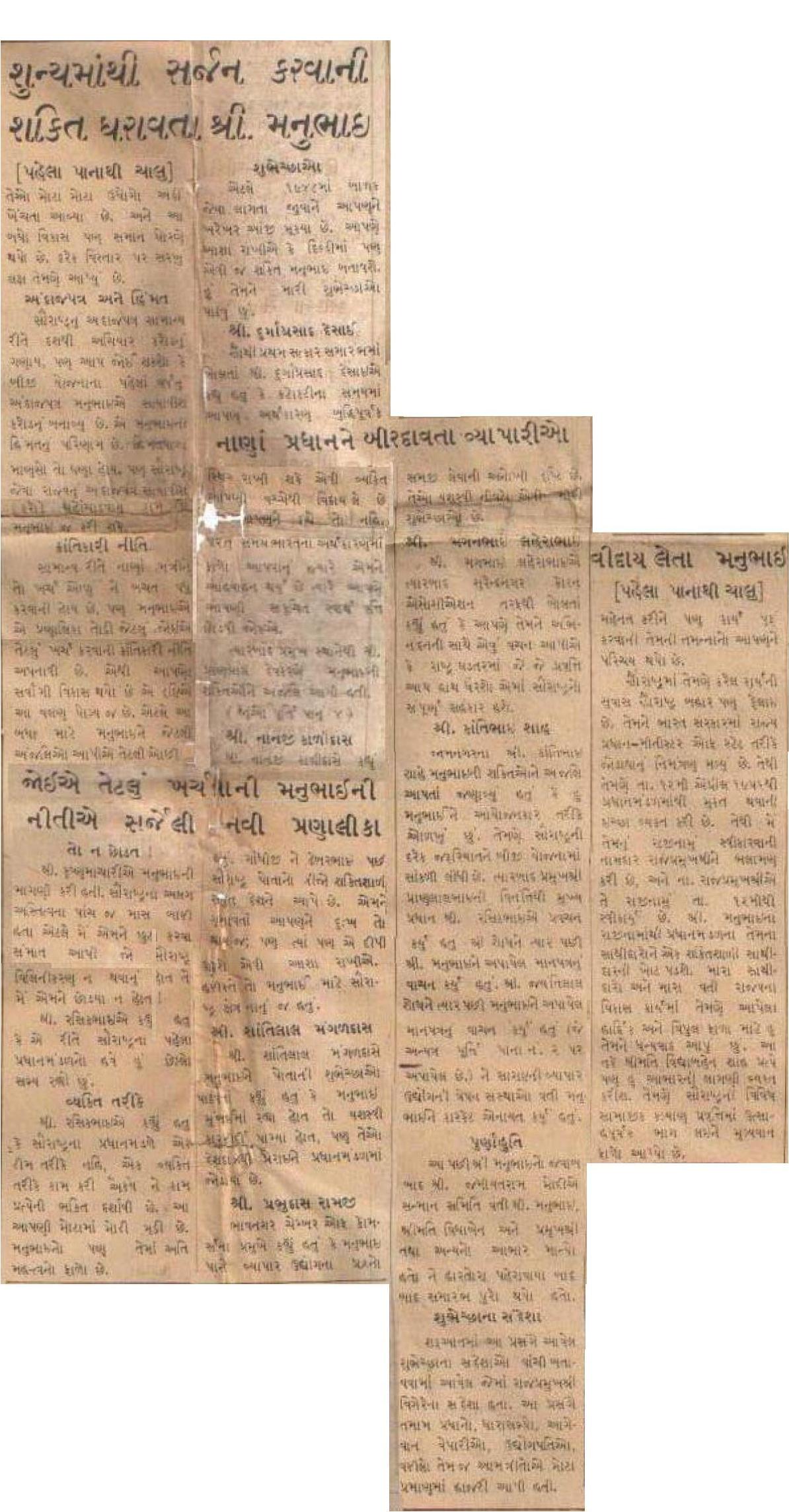
To paraphrase excerpts from the report shown above and the one below, Manubhai was also honoured among others by leading personalities such as Shri Durgaprasad Desai, Shri Nanji Kalidas, Shri Shantilal Mangaldas, Shri Prabhudas Ramji from Bhavnagar, Shri Maganbhai Lehrabhai from Surendranagar, and Shri Kantibhia Shah from Jamnagar, who in one voice said that “they had known Manubhai as an immensely competent planner and organiser of affairs. Manubhai had managed to meet each and every need of Saurashtra in the 2nd Five Year Plan … made possible only by his herculean (bhagirath) efforts.”
Finance Minister Manubhai Shah presenting the Budget in the State Assembly
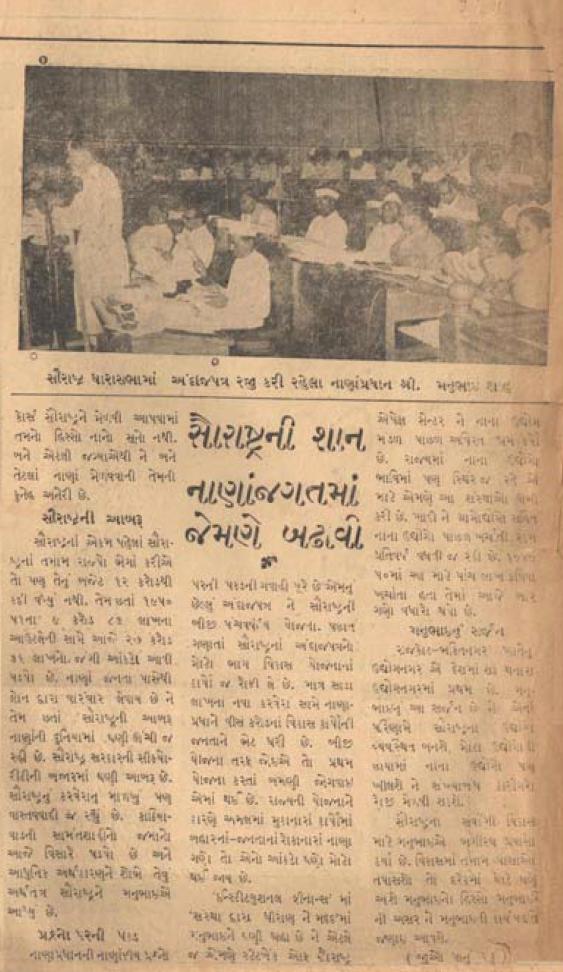
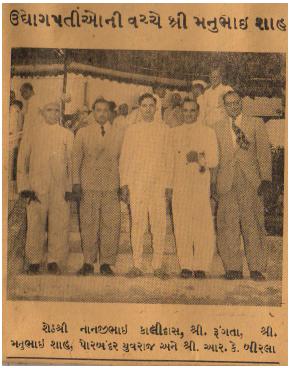
People of all ages always came in large numbers to listen to the speeches of Manubhai. He spoke and wrote on a variety of topics such as policy making, development, co-operation, citizen responsibilities, less government, removing unnecessary regulations and barriers to development, agricultural and industrial production, unemployment, democracy, technology, etc.
Manubhai seen below addressing a public meeting in Rajkot, Saurashtra in 1955
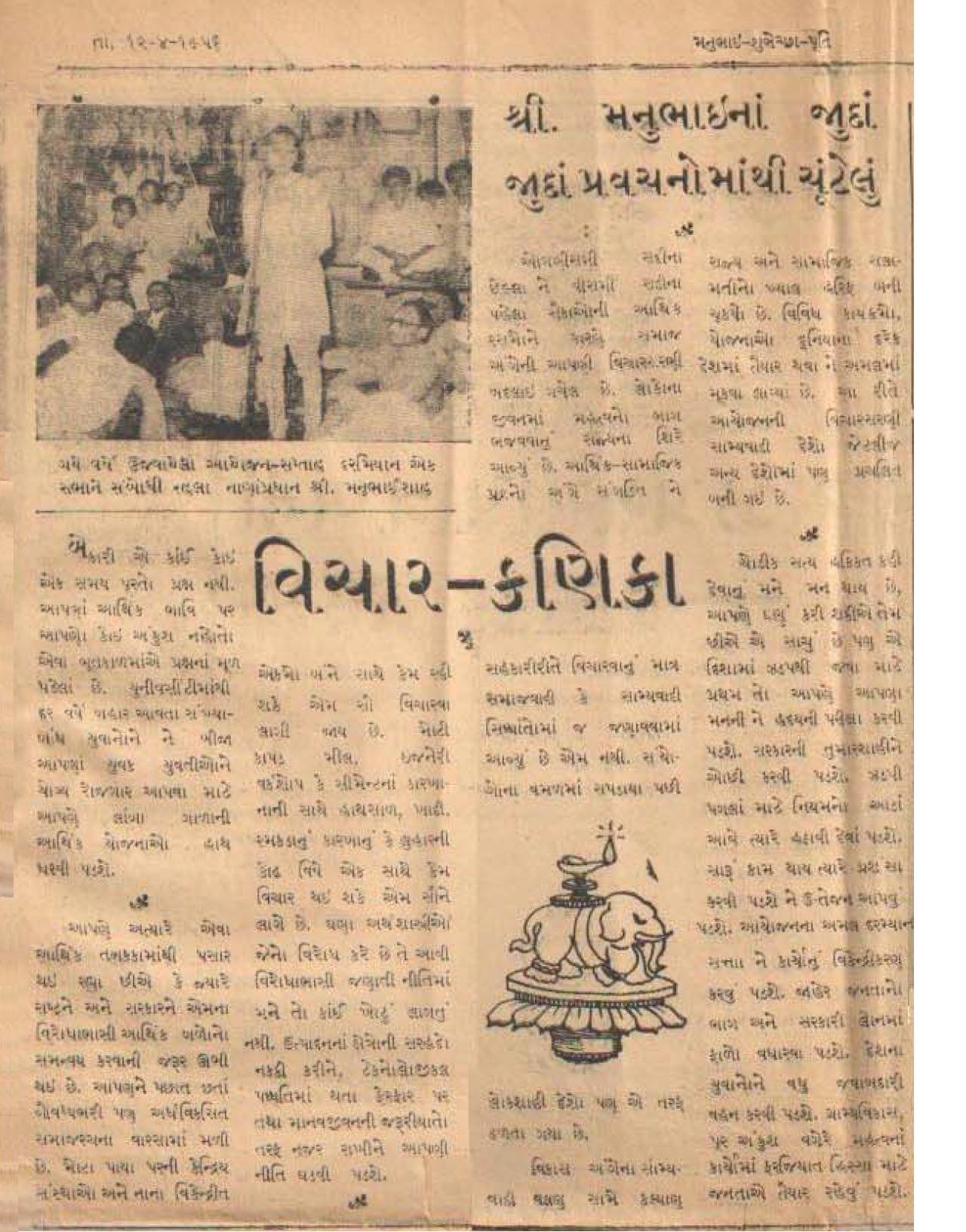
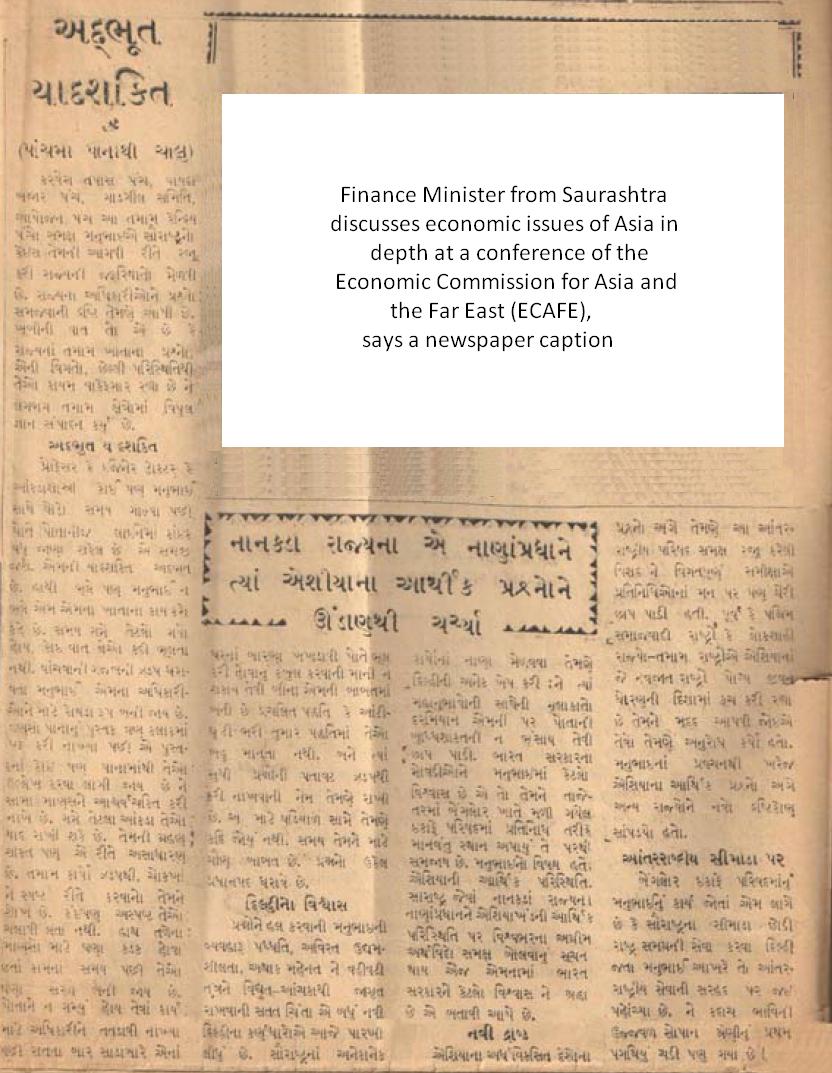
At the public meeting where Manubhai and Vidyaben were honoured, Manubhai spoke for 35 minutes and gave a reply to the people of Saurashtra who had showered tributes and love upon Vidyaben and him. He talked about “integrated development and what was required for expansion of the Indian economy.” He said that “it was not wise that only a few people possess the wealth of the country and that people who struggle and sweat to build the nation must also have a share in it, must equally be a partner in it.” He asserted that “only with a collective building of the economy, will the real wealth of the country grow.” He exhorted the public “to convert their personal interests to national interests for a speedy building of the Indian nation.”
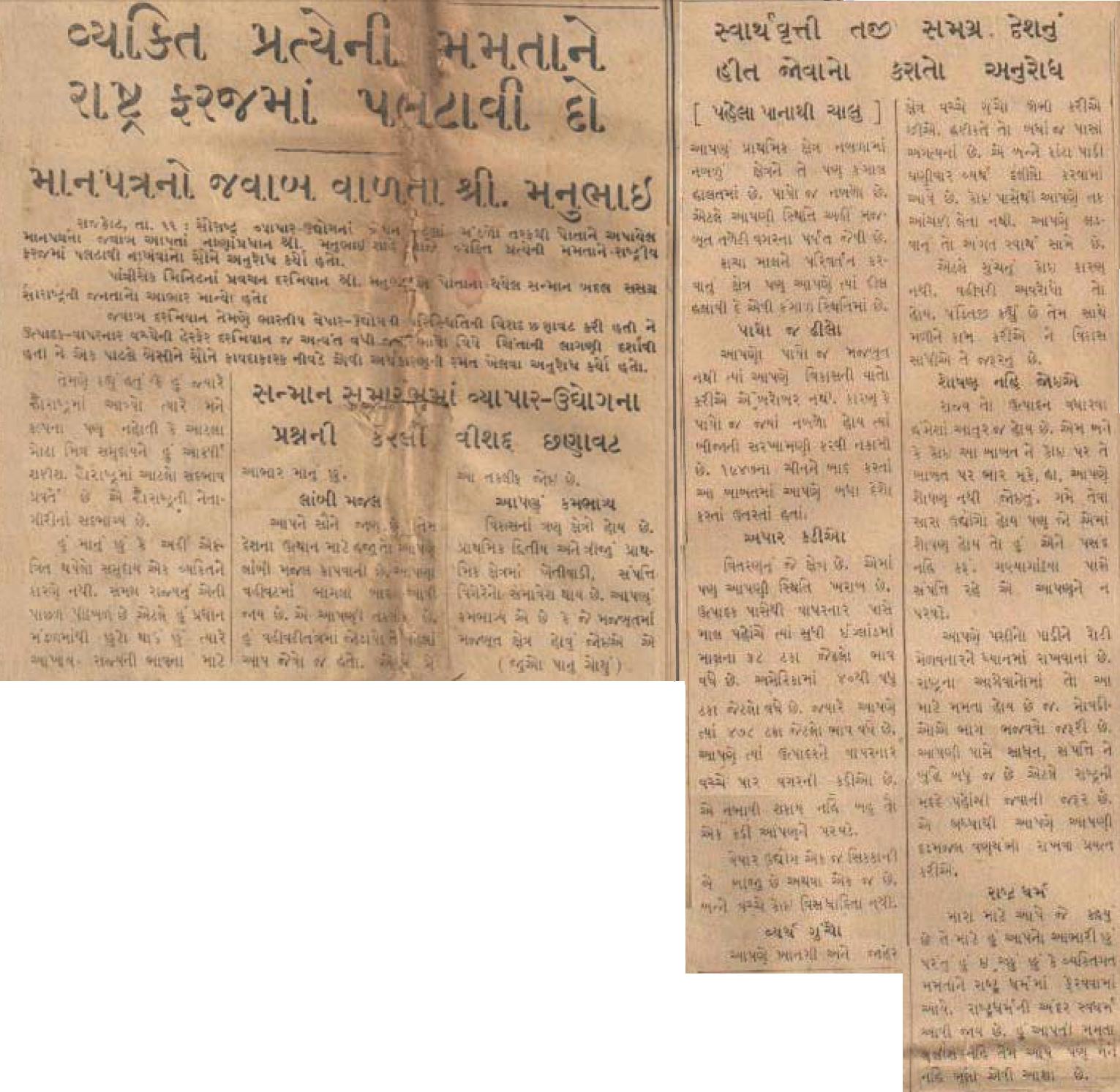
References
- ^ Maniben Patel (1978) Sardar’s Letters, Birth Centenary Vol. V, Navjivan Press, Ahmedabad, 1978, p 23.
- ^ Narandas Thacker (2002) Slump in industrial exports worries Rajkot, Times of India, Ahmedabad, 5 Jan 2002.
Mr Thacker states in his article that, “The engineering industry of Rajkot had its beginning in 1951, when the first proto-type-cum-training centre was set up in collaboration with the TCM (technical co-operation mission) of the United States, thanks to the sustained efforts made by Shri Manubhai Shah, who was then the Finance and Industry Minister of the erstwhile Saurashtra State and later became Union Minister for Industries. [Similarly it was due to the impact of Manubhai’s sustained efforts over nearly two decades that] the manufacturing of diesel engines was launched in the early sixties and the industry enjoyed its golden period till late seventies.”
CLICK BELOW TO VIEW OTHER PAGES ON VIDYABEN SHAH & MANUBHAI SHAH
Culture, Civics, Institutions What people said